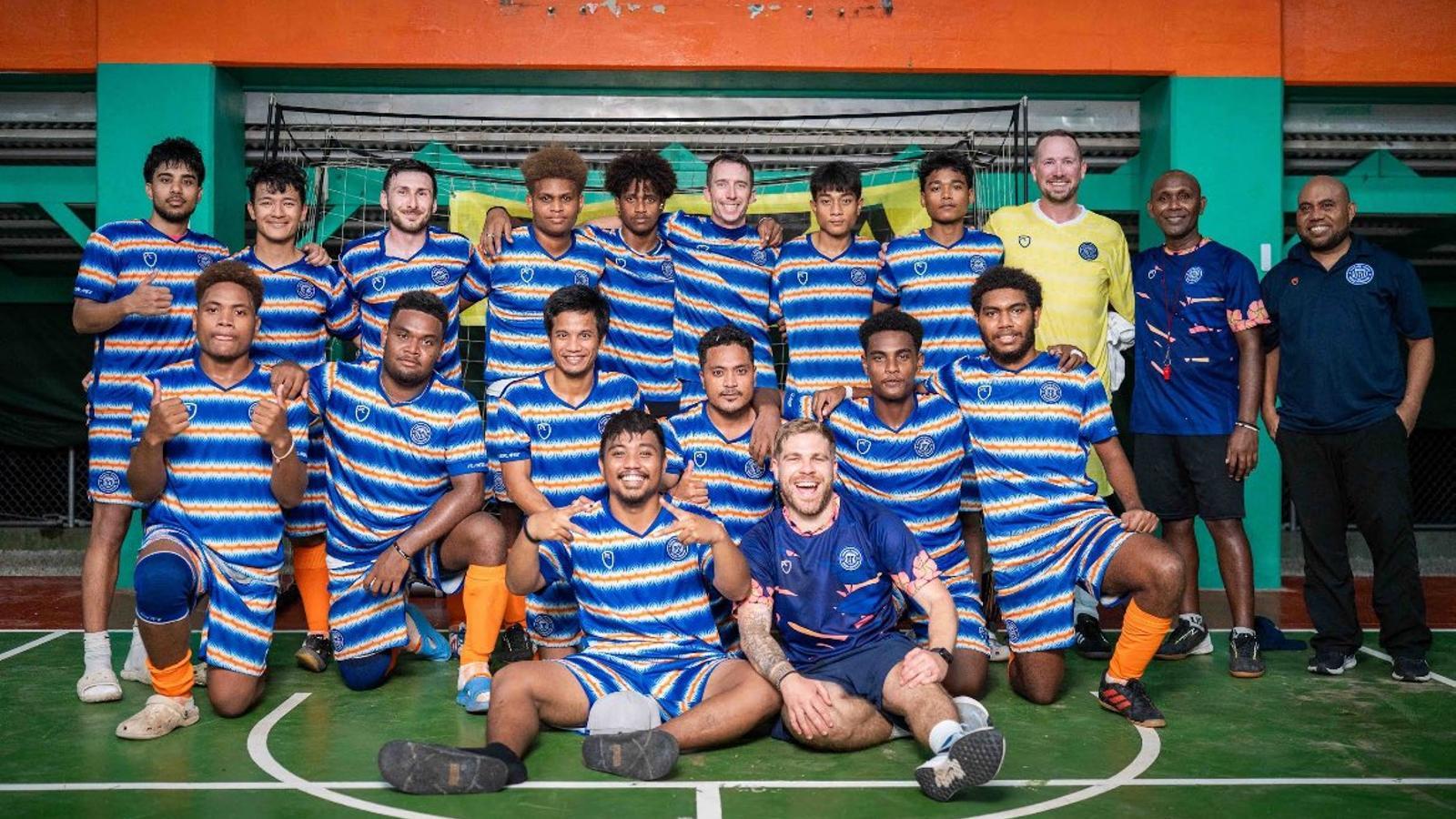The radioactive country that has learned to play soccer to survive climate change
The Marshall Islands, which was the only sovereign state in the world without a national team, has played its first ever match.


BarcelonaHalfway between Australia and Hawaii, lost in the vastness of the Pacific Ocean, lies one of the most remote and abused countries in the world: the Marshall Islands. Made up of 29 coral reef atolls and 1,152 tropical islands, most of them uninhabited, this island republic in Oceania functioned during the Cold War as a nuclear laboratory for the United States, which detonated more than sixty atomic bombs, which is why in some parts of its territory they are; that is why many Marshallese are born with deformities and suffer from cancer. But currently, their main concern is climate change which will make life impossible on their archipelagos in a few years: rising sea levels threaten to flood the entire country within half a century. Many citizens have already left their land to survive, They are climate refugees"Paradise is an island, hell too," wrote Judith Schalansky in her Atlas of Remote Islands.
In this apocalyptic context, the ball brings hope to the Marshall Islands, which is no longer the only sovereign country in the world recognized by the UN without a national football team. This Thursday night, it played its first international match in its history. This is largely thanks to the intrepidity of its coach, Lloyd Owers, originally from England. "When we arrived, there was nothing. No fields, no goals, no people who played football," this former amateur footballer in the United Kingdom and coach at Oxford City and the modest Kidlington explains to ARA.
Since 2022, he has been the coach of the Marshall Islands, after several WhatsApp conversations 13,000 kilometers away with Shem Livai, president and founder of the federation. Owers still lives in the United Kingdom, but spends long periods in the Oceanic state to carry out his project. "The challenge was enormous because we were starting from scratch. Literally, there were no balls. We shipped equipment from Europe and North America. Some of us traveled there to train coaches," adds his compatriot and inseparable travel companion, Justin Walley.
Building a national team from scratch
With the help of Walley, a real vagabond from the football beyond FIFA Owers, who managed the Matabeleland national team at the 2018 World Cup for unrecognized teams, laid the groundwork for the king of sports to take root in the territory: he made football a compulsory subject in schools and had a field built in the capital, Majuro. "Our next goal is to develop a local league," says the coach, who is providing the country with a football culture and structure that has allowed him to establish a national team two and a half years after arriving in the Marshall Islands.
"The first squad is for 22 players. It's made up of players from Majuro, Kwajalein—the most urbanized island, because there's a US military base there—and Marshallese living in the United States, whom we've located through the internet and word of mouth," explains the coach of a country with a larger population. Some of them are from Springdale, Arkansas, which is home to one of the largest communities of Marshallese abroad because it's home to an important businessman originally from the country who distributes poultry around the world and hires his compatriots to help them leave a territory whose days are numbered.
The Oceanian team made its international debut this Thursday in Springdale, as part of the Outrigger Challenge Cup being played in the US city, against the US Virgin Islands. They lost 4-0, but the result was irrelevant. "We've made history, not just for the Marshall Islands, but for football. We're the last country in the world to play their first international match. We've put the Marshall Islands on the world football map," said an excited Walley from Arkansas.
The Turks and Caicos Islands are also participating in the tournament, facing the Marshall Islands on Sunday the 17th. Both opponents are FIFA national teams, although they are ranked in the bottom five (206th and 207th). "We have submitted an application to join the Oceania Football Confederation, but have not received a response. If they don't accept us, we will consider submitting applications to CONCACAF (the Confederation of North, Central American and Caribbean Football) and the Asian Football Confederation as well, and we hope to be part of the global football family by 2030," revealed Walley.
A t-shirt that stirs consciences
The work of Owers, Walley and the rest of thestaffThe majority of the team, mostly British, is voluntary, but developing football in such a remote location and creating a national team costs a lot of money. All of this is funded through grants, donations (the travel and stay in Arkansas were paid for through crowdfunding) and the sale of merchandise. One of the most successful items has been the jersey. No-Man Jersey; it bears the number 1.5 on the front (the number of degrees Celsius the temperature has risen in the Pacific), and during its promotion, pieces of the jersey were disappearing to explain to the world the climate emergency affecting the Marshall Islands, condemned to die from flooding. Soon, his team will no longer be able to play at home. "One of our main objectives is to raise awareness about the catastrophic situation in the territory and promote actions that help reverse climate change before it's too late," proclaims the coach of the Marshall Islands, the radioactive nation that has learned to play football to survive climate change, from Springdale.
